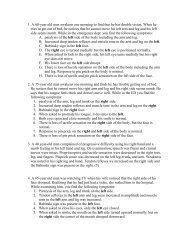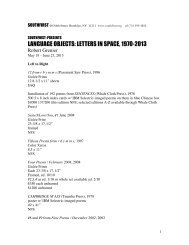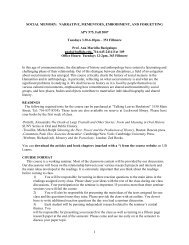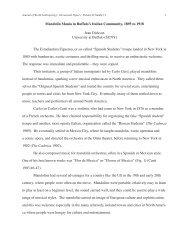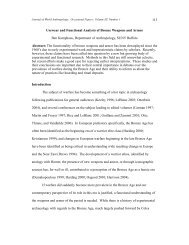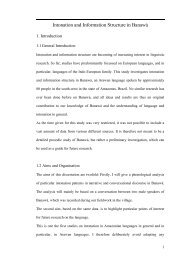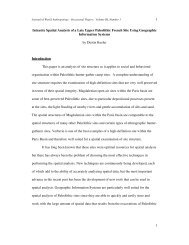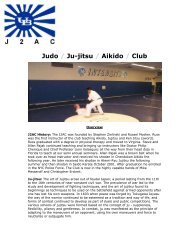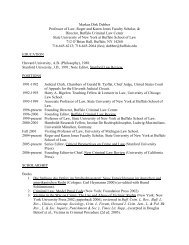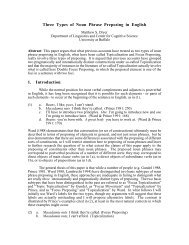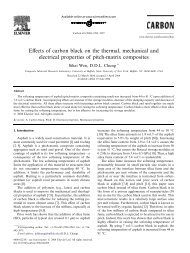Electrophysiological Evidence for Sentence Comprehension - Wings
Electrophysiological Evidence for Sentence Comprehension - Wings
Electrophysiological Evidence for Sentence Comprehension - Wings
You also want an ePaper? Increase the reach of your titles
YUMPU automatically turns print PDFs into web optimized ePapers that Google loves.
projection onto some set of semantic properties different from macroroles? In difference<br />
to the constituent projection where syntax-to-semantics linking is relatively easy to<br />
express as an algorithm, this ‘operators-to-semantics’ linking is more difficult to define.<br />
On the one hand there are properties such as tense, aspect, illocutionary <strong>for</strong>ce, negation or<br />
modality. On the other hand, is there a set of temporal relations and logical operators of<br />
negation quantifiers, necessity and possibility, to mention at least some of the elements?<br />
Finally, is there a subset that can be applied to all languages and what elements would it<br />
include? If RRG is to be followed, only illocutionary <strong>for</strong>ce is an universal operator. The<br />
answer to other questions can be only speculative: if syntax-to-semantics mapping<br />
consists of linking the constituents to the arguments of the logical <strong>for</strong>m of a verb defined,<br />
basically, as its arguments, this separate linking could, perhaps, be defined in terms of a<br />
logical structures as defined in various systems of philosophical logic: <strong>for</strong> example,<br />
temporal and spatial logic that captures laws governing temporal or spatial relations<br />
between propositions (e.g. UNTIL φψ meaning ‘at some point later than now φ holds,<br />
while at all intermediate points ψ holds’ (van Benthem, 2002:400)), modal logic that<br />
captures laws governing the notions of necessity and possibility, or epistemic logic that<br />
investigates logical behavior of knowing or believing. While the elements of temporal<br />
and spatial logic correspond to tense, aspect or directionals as operators in RRG,<br />
evidentials as RRG operators could be mapped into operators of epistemic logic.<br />
To conclude this speculation: when a speaker hears or reads a sentence, its<br />
comprehension does not depend only upon the identifying who is doing what to whom,<br />
but also, when the action occurs, where or with whose knowledge. These in<strong>for</strong>mation<br />
107



